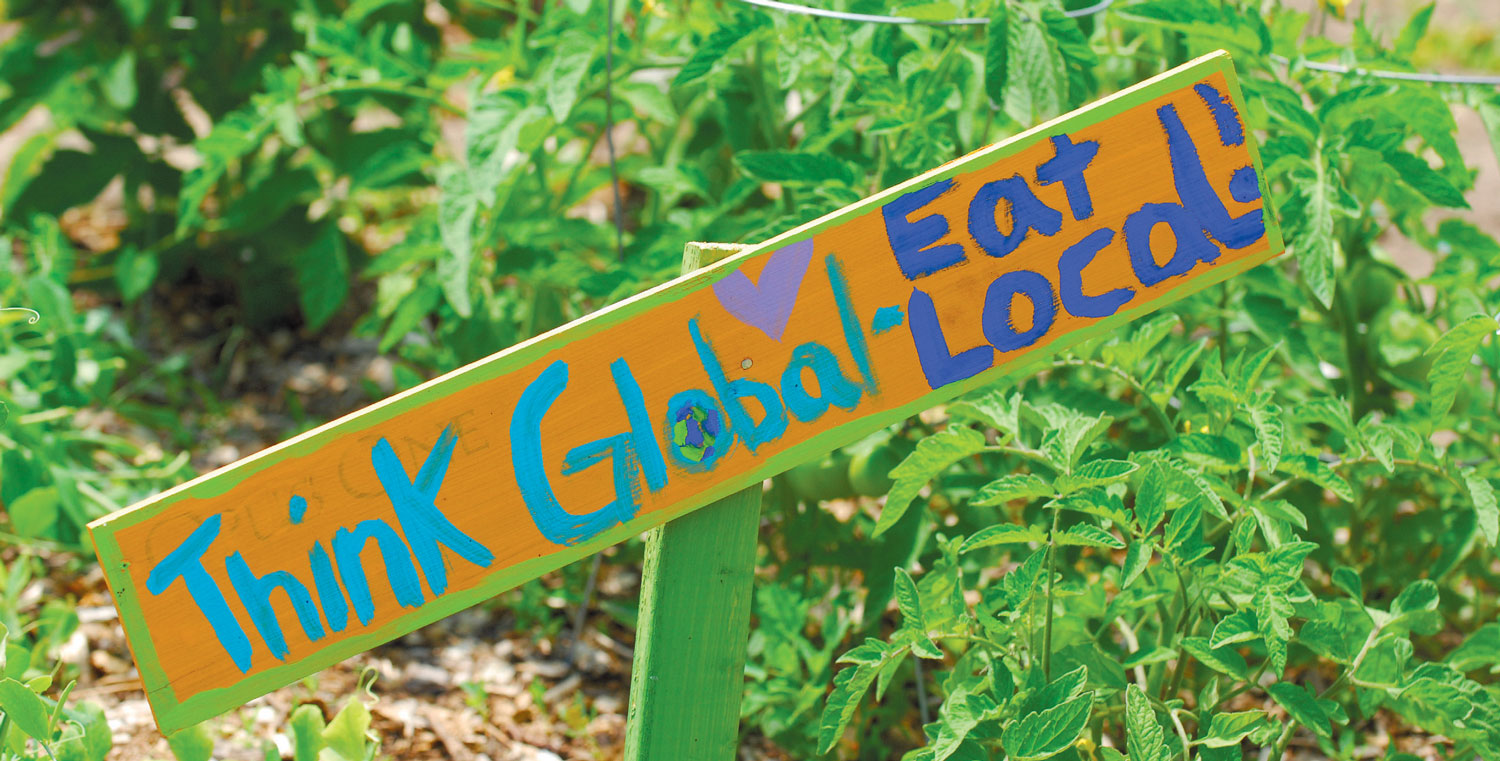The Food Commons Provides a New Model for Bringing Back Local Food
Should a community be able to feed itself?
Let's go back to the future to answer that question.
Imagine local farms and local neighborhood markets selling products from those local farms. Imagine also local processing operations and distribution services.
Now stretch your imagination a bit more, and imagine all of these local food enterprises – from farms to markets – all under one business umbrella and owned by the community, not some small group of wealthy investors. Further imagine the land and facilities owned by a community trust to be held in perpetuity for future generations.
Imagine these local food systems in communities everywhere linked together into a remarkable network for mutual support, coordination and learning.
This is The Food Commons, a vision that is becoming a reality.
It is not our intent to replace the global industrial system that brings us abundant food from all over the globe at affordable(?) prices. We're planning and organizing an alternative system that sits alongside the global industrial one, but focuses on local food, a system that does local food in sufficient scale that the efficiencies gained make high-quality local food affordable and accessible.
In 2009, Jim Cochran (a highly successful organic farmer near Santa Cruz) and I began discussing this concept. After working with a small team, and later with many more sustainable food system leaders from around the country, a concept document, The Food Commons 2.0, was released in October 2011.
Since then, after receiving funding from three foundations, three prototypes are in development plus national support structures in operation: The flagship prototype is Fresno, followed by Atlanta, Georgia; and New Zealand.
There are many efforts around the country that have emerged to provide infrastructure and other services to support local food. For instance, recognizing the lack of aggregation and distribution services for local food, many food hubs have sprung up to meet this need. Like the growth in farmers' markets, these food hubs are attempting to source from local growers and then distribute local product to community markets, restaurants and food service.
While The Food Commons incorporates the food-hub function, it is a much larger and more complex enterprise. It is an entire system, fully integrated. We believe by developing a system that incorporates all the necessary food chain operations, local food has a much better chance of succeeding and becoming an important and significant part of the whole food sector.
The entirety of our food sector is estimated to be over $1 trillion in terms of annual revenues. Local food is currently estimated to be less than 1% to maybe 3%, depending on the region or community being measured. We believe, given the tremendous demand for local food, it could easily comprise 10% of the food sector – that is, if the necessary infrastructure could be built and operated successfully.
But we need more than just food hubs. We need farms, processing plants, markets, restaurants and institutions to be dedicated to local food. And more importantly, we need new technology, ownership structures and business models to accomplish this daunting task.
The Food Commons is a national initiative to rebuild mid-scaled, locally driven food infrastructure with community-based ownership and governance.
At the local level think of it as part cooperative, part employee-owned business and part land trust.
If you go back 100 years, most of our food systems were local. Local farmers who we knew and trusted produced our food. And we had local butchers, bakers and candlestick makers. The Food Commons seeks to revitalize this community level food system but with a 21st-century spin, using all the best available technology.
Our goal is make local food highly accessible and affordable with a community ownership structure so that customer loyalty and community stewardship are built in.
This is not unlike the football team the Green Bay Packers. The GBP are not owned by some wealthy sports mogul, but rather by the citizens of Green Bay and region. There are approximately 300,000 loyal "cheeseheads," each of whom is part owner.
Our endeavor is bold and ambitious, but we think doable.
While our industrial food system has provided great abundance – making food fast, convenient and cheap – it is not without flaws. In fact, there are major problems/challenges with the global industrial food system.
It is our hope that The Food Commons will provide a unique alternative and help better balance the industrial system that now dominates our food world.
For more info, visit TheFoodCommons.org.
The Buckminster Fuller Institute named The Food Commons a semi-finalist in the 2014 Fuller Challenge, which honors innovative solutions to the world's most pressing issues. Finalists are chosen in October, with winners of the $100,000 prize announced in November.
Editor's Note: Ojai resident Larry Yee is the co-founder, president and coordinating director of The Food Commons, which is primarily a business development initiative. Working nationally in sustainable agriculture and food systems, he has helped create numerous organizations, many of which provided conceptual threads that led to The Food Commons.





